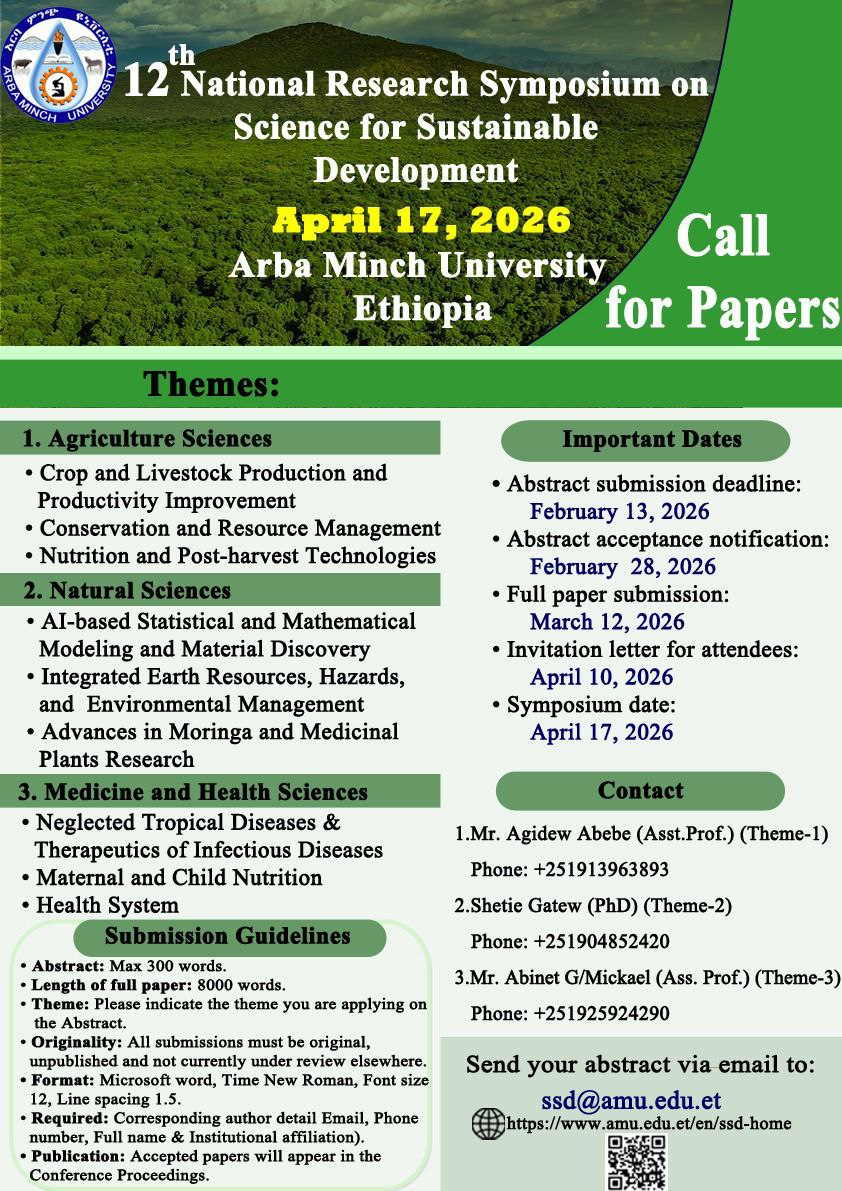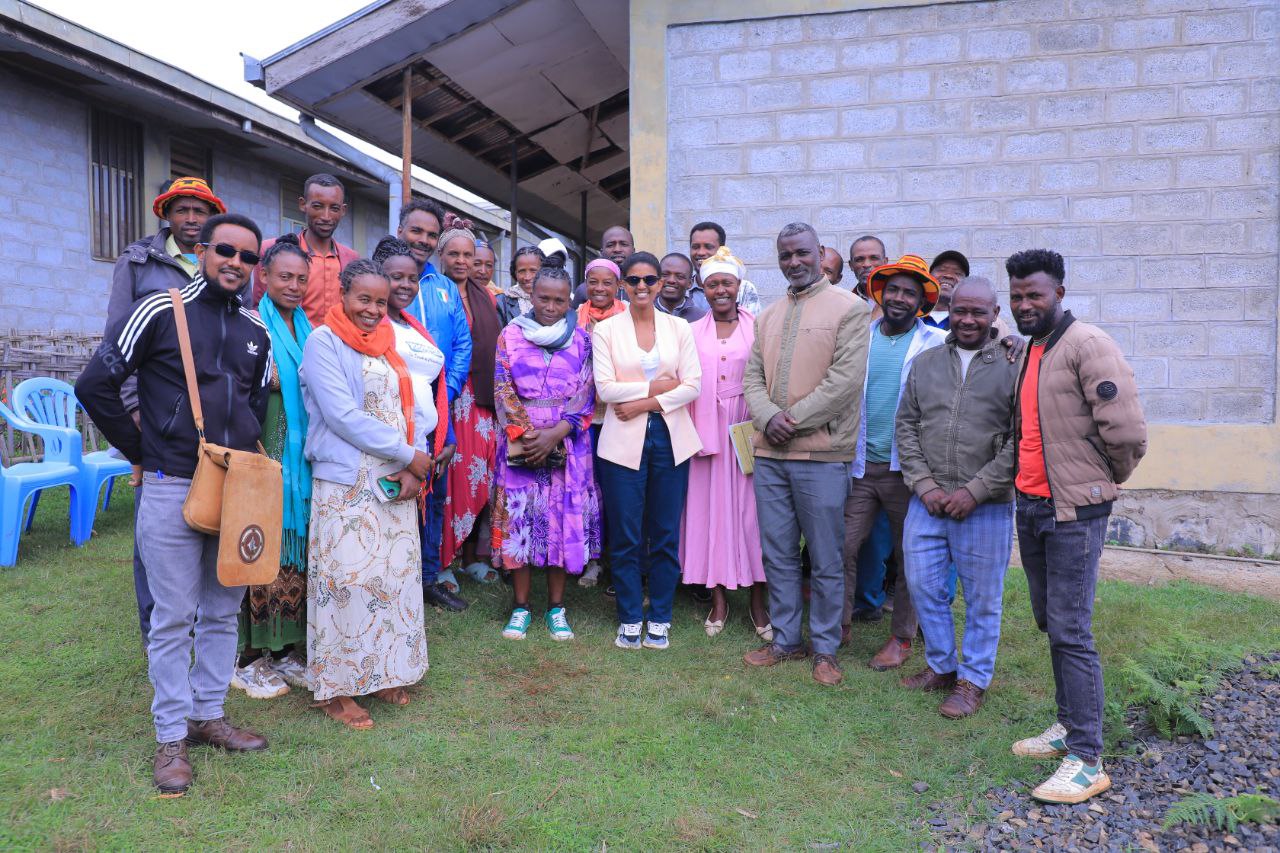Arba Minch University College of Medicine and Health Sciences (AMU-CMHS) Department of Dermatology in collaboration with the Institute of Tropical Medicine (ITM) held an advocacy meeting with public representatives from Dorze Kebelle and Chencha Zuria Woreda on health seeking behavior of the community towards Cutaneous leishmaniasis locally known as ‘Bolbo’ disease at Dorze Health Center on May 29, 2025. Health extension workers, kebelle administrators, Chench Zuria Woreda Health Office delegate and Dorze Health center Head and other representatives participated in the meeting. Click here to see more photos.
Dr. Mehret Techane, AMU-CMHS Staff, Dermatology Department Assistant Professor, Researcher and a Sandwich PhD Student at ITM, Antwerp) said that the aim of the advocacy meeting was to orient kebelle administrators and major stakeholders to take part in the fight against Neglected Tropical Diseases (NTDs) particularly Cutaneous leishmaniasis (Bolbo) which poses major health challenge in the highlands of Gamo zone. Depending on the preliminary evaluation of a few number of patients treated despite FDRE Ministry of Health decentralization of Bolbo treatment to the local Dorze Health Center and Chencha General Hospital, it was found out that we need to raise the public awareness towards using the treatment made available by the government, inform about its being free service, find out the reasons why sufficient level of Bolbo patients aren’t being treated, she noted.
Cutaneous leishmaniasis (Bolbo) is an underestimated but a serious disease which would leave a lasting scar and damage on the patients and it mostly attacks children, she explained. Bolbo primarily affects the face and, if not treated early, it can cause severe skin damage and permanent scarring which often leads to stigma, social isolation, and significant psychological distress, Dr. Mehret remarked.
According to her, health sector officials, kebelle administrators and health extension workers around the affected areas should impact positively by creating awareness and encouraging the community towards early treatment of Bolbo with modern medication which takes weekly injections for a month or daily injection at the hospital depending on the type of the disease. She also confirmed that the medication cures 80% of the cases effectively and warned the community representatives to note well that the traditional treatment shouldn’t be the priority option as it will leave dangerous and lasting scar and asked to fight against community negligence against its treatment.
Further explaining the disease impact, Dr. Mehret said, of course, Bolbo is not a fatal disease or has acute symptoms like fever, malaria or other diseases and it mostly affects children which could be the reason behind the neglect; however, the disease’s impact will last long in life. Two years ago before the decentralized medication option made available, the treatment was limited in Arba Minch General Hospital for Gamo Zone and the affected patients were required one month bedding in Arba Minch, but, now, though the treatment is accessible in Dorze Health Center and Chencha General Hospital, the expected affected individuals are not being treated; this really causes the curiosity of such discussion, she reiterated.
Gashaye Anja, Dorze Health Center Head, said, Bolbo is common and its impact on the community specially on children from ages 3-15 years is so saddening; areas such as Herpo, Billala na shai, Tutusha, Geema and Shama Kebelles including many more others are affected. We have to try our best to get all the infected children treated as early as possible; Kebelle administrators and health extension workers should play a significant role of mobilizing the community, he urged.
The health extension workers also reflected on the public response to the decentralized medication and said that some treated cases being not cured may have demotivated the community. They also promised to include Bolbo patient report in their weekly activities to address the community effectively so that children can be treated as early as possible.
For more Information Follow us on:-
Website - https://www.amu.edu.et/
Telegram - https://t.me/arbaminch_university
Facebook - https://www.facebook.com/ArbaMinchUniversityccd/
YouTube - https://www.youtube.com/channel/UCOO_nclhMo8M3r74OyPBlVA
Public and International Relations Executive





